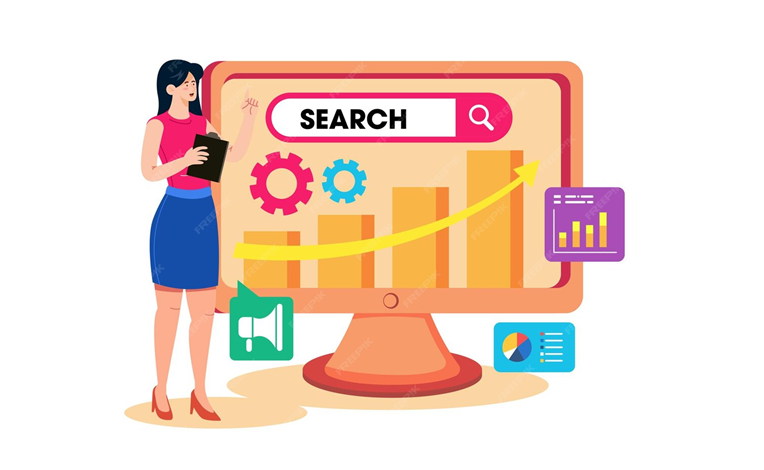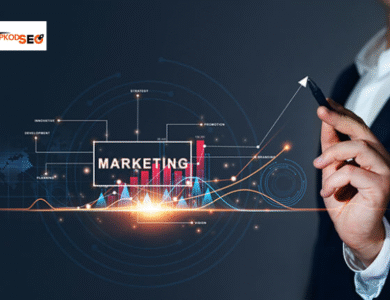
In the contemporary digital environment, companies are struggling to advance more rapidly and become more active online. Search Engine Optimization (SEO) and Pay-Per-Click Advertising (PPC) are two of the most efficient methods of performing these objectives. Historically, brands have turned to either one of the two, but the most successful companies are currently adopting a hybrid approach, which uses the merits of both PPC and SEO to achieve faster growth and sustainability.
This blog will discuss how these two strong tactics can be combined to achieve increased results, as a blend approach is crucial in competitive markets, and offer practical ways on how you can adopt it in your business.
Understanding the Basics: PPC vs. SEO
There are fundamental differences between PPC and SEO that should be known before delving into the hybrid strategy. SEO (Search Engine Optimization) is a long-term technique that aims at enhancing the ranking of the search engines, such as Google. It entails optimization of content, enhancing the structure of the site, improving the user experience, and authority creation by creating backlinks. SEO is time-consuming, yet it yields long-lasting results.
PPC (Pay-Per-Click), on the other hand, is a pay-based approach, where advertisers compete by bidding on keywords and placing their ads with search engines or other platforms such as Google Ads, Facebook, and LinkedIn. It provides immediate exposure and traffic, but it needs continuous investment.
Each of the channels has advantages and disadvantages when worked individually. However, when put together strategically, a strong synergy is formed, which increases brand growth.
Why a Hybrid Strategy Matters
Using SEO alone might require months before it takes effect. Conversely, PPC may cause instant traffic but at a price of continuous expenditure. The hybrid method addresses the following problems:
Instant Visibility & Long-Term Stability:
PPC will result in immediate wins, whereas SEO will result in the establishment of authority over the long term. The combination of them provides a balance between short-term conversions and sustainable growth.
Data-Driven Insights:
PPC campaigns generate real-time keyword and performance data. This knowledge can be used to optimize the SEO strategy and make sure resources are being invested in convertible keywords.
Maximizing SERP Real Estate:
When you are ranked in the paid and organic results, you do more to increase the visibility, credibility, and click-through rates of your brand. A brand that occupies the search results page has higher chances of being trusted by its users.
Reduced Dependence on One Channel:
Updates to the algorithms or an increase in the cost of ads may affect performance. A hybrid strategy makes diversification of your digital presence less risky.
Benefits of Combining PPC with SEO
Combining PPC with SEO for ___ comes with different benefits. Here are their details:
1. Faster Market Penetration
Launching a business or a product is usually a challenge that requires rapid creation of visibility. SEO does not guarantee instant traffic, and with PPC, a brand can always be seen at the earliest in front of a prospective customer. With time, the effect of SEO builds up, and dependence on paid advertisements is minimized.
2. Improved Keyword Strategy
PPC campaigns provide the knowledge regarding the efficient keywords that result in conversions. They could be incorporated into the search engine optimization strategy, and the organic content is aligned with the validated demand.
3. Increased Brand Trust
Users can witness a brand in the ads and organic listings. The effect of this kind of doubleness is authority and trustworthiness.
4. Smarter Budget Allocation
Monitoring performance in PPC and SEO, a business will be able to understand which keywords will naturally be more effective and which will need the assistance of paid promotion. This makes sure that marketing expenditure is wiser.
5. Enhanced Remarketing Opportunities
SEO-supported traffic can be retargeted with PPC campaigns, meaning that the potential customers who did not turn into customers are reminded of your brand in the future.
Real-World Examples of Hybrid Success
Some real-world examples of this hybrid success are discussed below:
E-Commerce Stores:
Online retailers frequently run PPC campaigns on high-converting keywords as they create content based on SEO, like buying guides and product reviews. This mix guarantees short-term sales as well as long-term customer purchases.
Local Businesses:
A local restaurant could also be doing PPC advertising on the best Italian food nearby, and at the same time, optimize its Google Business Profile and web pages for local search. The two-fold presence increases local visibility. According to recent stats, approximately 65% of marketers consider local SEO crucial for reaching their local audience and improving their website’s search ranking against competitors.
B2B Companies:
In the case of SaaS vendors, decision-maker PPC campaigns can generate demo requests, whereas the prospective users are informed by SEO materials (blogs, case studies, and white papers). They all reduce the sales cycle.
Overcoming Common Challenges
Although the hybrid strategy is very effective, the challenges that businesses usually face include:
- Budget Constraints: It may be tough to allocate spending on both PPC and SEO. It is proposed to use a gradual method, where PPC should be used at the beginning of the investment process, and SEO should gain traction.
- Resource Silos: PPC and SEO are activities that are perceived in different ways by many companies. Silos must be broken and cooperation encouraged in order to achieve hybrid success.
- Attribution Complexity: It can be hectic to know the channel that is making the conversions. Impact measurement can be done by using sophisticated analytics and multi-touch attribution models.
Best Practices for a Successful Hybrid Approach
- Make sure your ads and website content consistently communicate the same message to users.
- Use PPC campaigns to follow up with visitors who came from SEO but didn’t convert.
- Focus PPC on commercial-intent keywords while using SEO for informational search queries.
- Regularly observe competitors to identify opportunities and gaps in both paid and organic search.
- Regularly use platforms like SemRush to track Brand performance across both channels and make data-driven adjustments.
Conclusion
The debate of PPC vs. SEO is outdated. The actual competitive edge is PPC + SEO, a combined approach that helps to combine the direct visibility of the paid advertisement with the long-term development of organic positions. Goal alignment, knowledge sharing, and working to produce integrated campaigns will help companies grow faster, realize higher ROI, and have years of success.
For companies that want to stay ahead in a competitive digital world, the best approach is to use both PPC and SEO together. Combining them will help your growth speed up.
FAQs:
What is a hybrid PPC and SEO strategy?
A hybrid strategy combines the immediate traffic from PPC with the long-term growth of SEO. It helps businesses achieve faster visibility and a sustainable online presence.
Why should businesses use both PPC and SEO?
Using both channels provides instant results through paid ads while building organic authority over time. It also reduces reliance on a single marketing channel and increases overall brand visibility.
How can PPC help improve SEO efforts?
PPC campaigns provide real-time data on high-performing keywords and audience behavior. This information can be used to optimize SEO content and target the most effective search terms.
What types of businesses benefit most from a hybrid strategy?
E-commerce stores, local businesses, and B2B companies all gain from combining PPC and SEO. It helps them drive immediate sales, increase local or niche visibility, and shorten sales cycles.
What are the common challenges of using a hybrid approach?
Businesses may face budget constraints, department silos, and difficulty attributing conversions accurately. These challenges can be managed by gradual investment, cross-team collaboration, and using analytics tools to track results.



